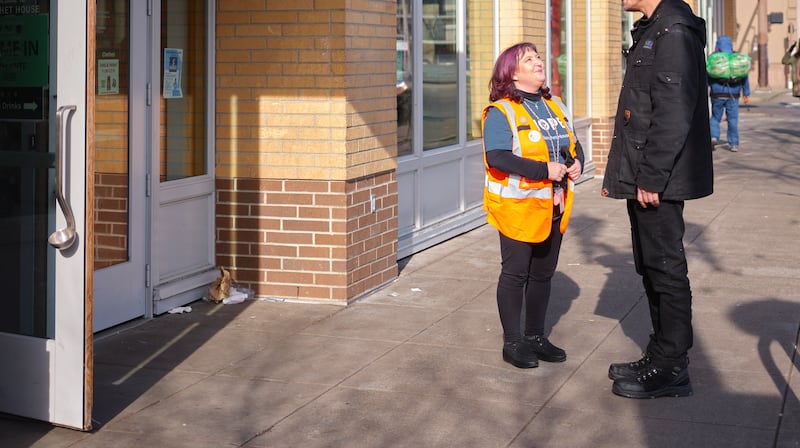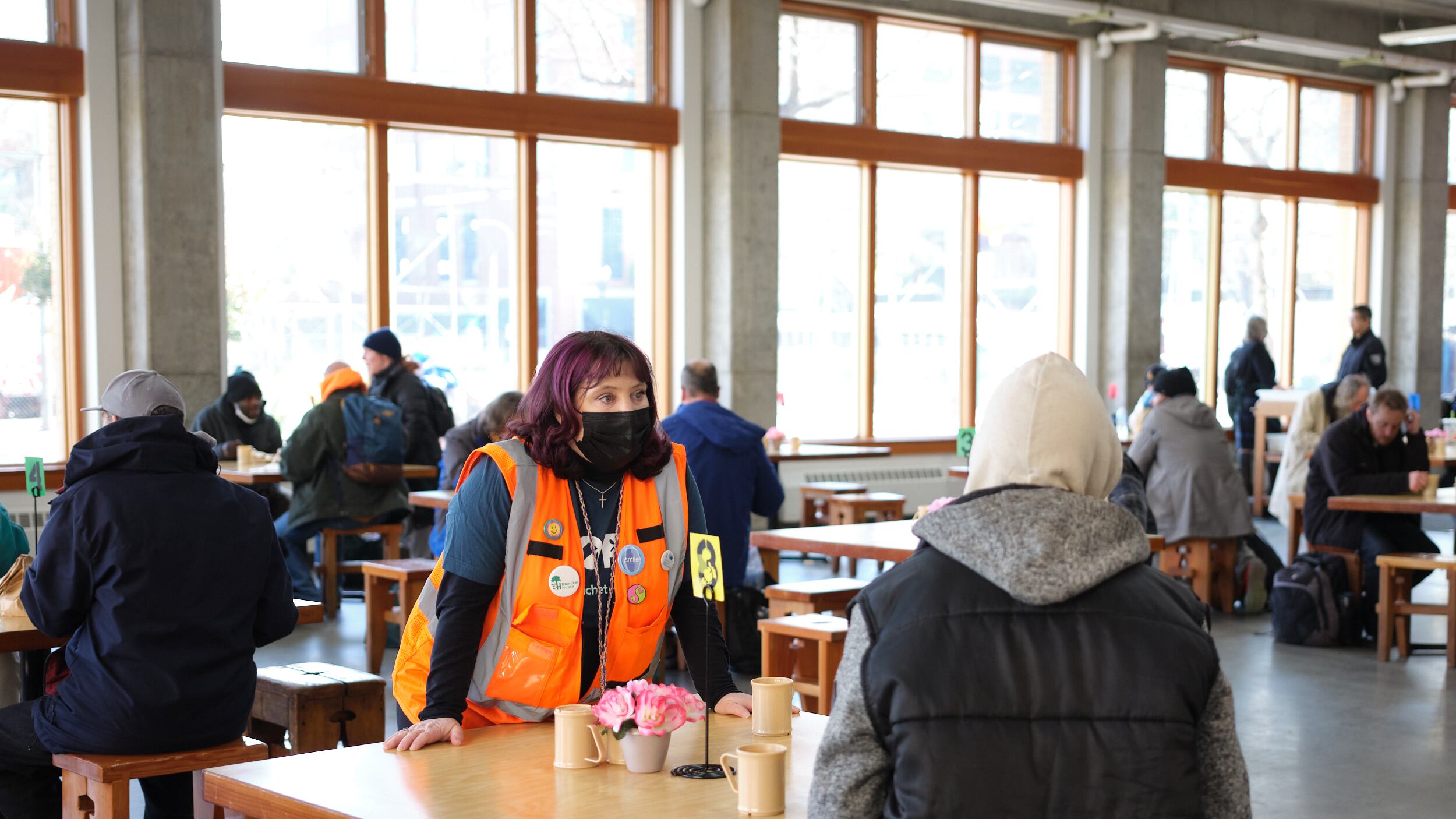Each afternoon for more than a year and a half, Jenn Coon has put on a neon orange utility vest, sneakers and jeans and made her way to Old Town. Coon works as a peer support specialist at Blanchet House, which serves both as a residential home for men in addiction recovery and as a meal provider (breakfast, lunch and dinner) for homeless Portlanders.
Coon, 54, a recovering addict and formerly homeless herself for six years in Portland, knows nearly everyone who comes down there.
“Most of the people on the streets know that I used to eat out of a garbage can. That helps keep me sober,” Coon says. “I don’t rub it in anyone’s face. But I do know recovery is possible. I’ve truly been where they’re at now.”
Coon spends every afternoon and evening talking to the people lined up for meals at Blanchet House. She’ll fetch them shoes if they’re barefoot. She’ll fetch them water if they’re coming down from a high. If someone brandishes a weapon and is violent, she’ll usher all the other guests inside. She’ll try to talk them down. If she feels they’re a danger to her, too, she’ll resort to her least favorite option: calling the police.
Coon, who stands 4-foot-10 on a good hair day, doesn’t take shit from anyone. She’s kind but firm. For the most part, people know not to mess with her.

She doesn’t parse words about sometimes fearing the very people she cares for. But she doesn’t hold it against them.
“Sometimes I am afraid,” she says. “I think it’s the unpredictability that tends to scare me. It happens in the daylight, completely unprovoked. One day someone can be your best friend, and then the next day they don’t know who you are, and call you Aunt Margaret, or accuse you of taking their baby, or something so outlandish they want to kill you. You can’t make sense out of nonsense.”
For half a decade she lived a similar life to the people who live in tents and under bridges in Old Town.
Coon became an addict in her 30s. Her children were taken away from her. She bounced from drug to drug: first pills and Vicodin, then heroin, then meth. She says when she started administering via needle “is when it got bad.” She would wake up, on Southeast Foster Road and 74th Avenue, literally frozen to the ground.
After six years of living outside, she decided to get clean. She spent six months in residential treatment and another six months in transitional housing. Then she got her own apartment.
“My kids are back in my life, I have a brand new car and a job I’m proud of,” Coon says. “I go to church every Sunday. My life is just amazing.”
Amid warring ideologies over how best to address homelessness—housing first or shelter first—Coon doesn’t engage in the political squabble. She just shows up. Every day.
This article was published with support from the Jackson Foundation, whose mission is: “To promote the welfare of the public of the City of Portland or the State of Oregon, or both.”
